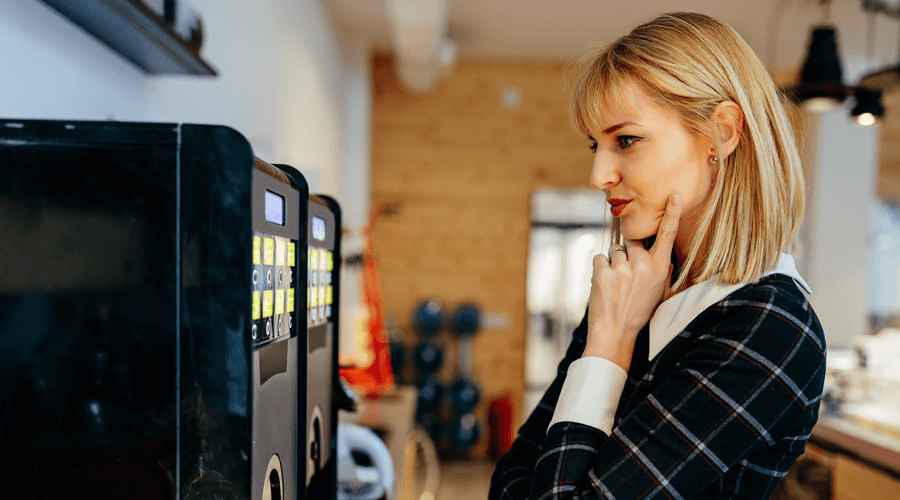Whether you're launching a new practice or upgrading your digital imaging suite, the right loan or lease can help you finance dental equipment without putting strain on your cash flow. In fact, 80% of dental businesses use financing to acquire equipment, from dental chairs to panoramic X-rays.
And the industry is only growing. The global dental equipment market is projected to reach $22.1 billion by 2034, making it clear that staying current with technology is key to practice success.
This guide will walk you through typical equipment costs, explain the difference between loans and leases, and help you choose the best-fit financing strategy, whether you're running a local office or expanding nationally. Clarify Capital makes it fast, flexible, and easy to get the equipment your practice needs.
Why Financing Dental Equipment Makes Sense
For many dentists, the decision to finance equipment is less about affordability and more about strategy. Instead of paying tens of thousands of dollars upfront, financing solutions allow practice owners to spread costs over time with predictable monthly payments, freeing up cash for payroll, marketing, or emergency needs.
Let's say you're outfitting an operatory with a new dental chair, autoclave, and digital X-ray unit. That could easily cost $50,000 or more. Rather than dipping into reserves or maxing out credit cards, you can break that into manageable payments, retain your working capital, and keep your practice financially agile.
Financing also unlocks access to the latest technology, which can improve patient experience and help you stay competitive in a crowded market. Plus, many loan and lease structures offer tax benefits, such as deductions through Section 179 or expensing lease payments.
You're not alone in this approach: 54% of equipment acquisitions were expected to be financed in 2024, and dentists have among the lowest risk profiles, with a loan default rate under 1%. That makes approval easier and options more competitive.
Typical Dental Equipment Costs
Setting up a modern dental office requires a serious investment in both core and specialty equipment. Whether you're building a new practice or upgrading an existing one, the upfront costs often push well into six figures, making dental equipment financing a smart move for maintaining cash flow.
Let's break it down by major categories:
Dental chairs. Essential for every operatory, a high-quality chair with delivery systems and lights can cost between $7,000 and $15,000 each.
Digital X-ray systems. A single digital sensor setup may run $10,000-$20,000. A more advanced CBCT (cone beam computed tomography) machine costs between $30,000 and $50,000.
Sterilization systems. Autoclaves, ultrasonic cleaners, and cabinetry can total $10,000-$25,000, depending on the brand and compliance requirements.
CAD/CAM machines. These digital milling units for same-day crowns typically cost $70,000-$120,000.
Furnishings and build-out. When you factor in cabinetry, waiting room furniture, and office tech, the total climbs fast.
Altogether, dental equipment and furnishings can cost between $150,000 and $200,000 according to Shinoda Dental's cost estimates.
That's why most dentists rely on financing to access the latest technology without draining savings or slowing growth.
Loan vs. Lease: What's Right for Your Practice?
When it comes to high-cost dental equipment like panoramic or CBCT X-ray machines, the type of financing, whether you buy or lease, can significantly impact your cash flow, tax planning, and long-term return on investment. Both equipment leasing and traditional loans offer benefits; what's best depends on your practice's goals and financial structure.
With a dental equipment loan, you own the asset and make fixed payments over time. You'll benefit from flexible terms, potential tax deductions through depreciation or Section 179, and no limitations on how the equipment is used. Loans are especially appealing when you're investing in equipment with a long useful life and want to build equity in your assets.
In contrast, leasing offers lower upfront costs and the option to upgrade more frequently. This is ideal if you're outfitting a new practice, want to preserve working capital, or need to keep pace with fast-changing technology. Most leases include predictable payments and shorter loan terms, and some even include servicing and replacement options.
No matter the approach, most dentists finance equipment one way or another; 75% of equipment is acquired through loans, leases, or lines of credit.
How the Financing Process Works
Securing dental equipment financing is often simpler and faster than many practice owners expect, especially when working with lenders who understand the dental industry. Whether you're financing new chairs, a CBCT machine, or a sterilization system, here's what the application process typically looks like:
1. Pre-Qualification
You'll start by completing a basic loan application, usually online. With Clarify Capital, this step takes under two minutes and includes no obligation or credit impact.
2. Submit Documentation
To move forward, you'll need to provide key business information, such as:
Recent bank statements
Estimated revenue
Equipment quote or invoice
Credit score (personal and/or business)
Time in business
These documents help lenders determine your loan amount, rates, and down payment requirements.
3. Underwriting and Approval
The lender will review your file; this is the underwriting phase. Most approvals happen same-day or within 24 hours. In 2023, the equipment finance loan approval rate reached 77.5%, reflecting how accessible these loans are for dentists.
4. Funding and Purchase
Once approved, funds are sent directly to the vendor or your business account. From there, you can purchase equipment and move forward with delivery and installation.
For larger purchases or full-practice investments, SBA-backed loans are also an option, averaging $847,000 in Q1 2025 for dental professionals.

Dental Equipment Financing Across the U.S.
Whether you're launching a new office in Austin, upgrading imaging tools in Los Angeles, or expanding to a second location in Upstate New York, Clarify Capital helps dental professionals across the country access fast, flexible financing. Our nationwide network of lenders supports business owners in every state, so you're not limited by geography when it comes to getting competitive offers.
In high-growth states like Texas and Florida, practices are scaling quickly to meet rising patient demand. Meanwhile, established markets like California and New York are investing heavily in digital workflows, leading to more purchases of CAD/CAM tools, intraoral scanners, and chairside milling machines.
Across the board, startup costs remain steep, averaging between $400,000 and $600,000 to open a dental office, according to DentalCPAUSA. That's why most new startup owners rely on financing to preserve liquidity and get operational faster.
And there's no sign of slowing down: the U.S. dental industry is booming, with the dental equipment market projected to hit $5.7 million by 2030.
Wherever your practice is based, Clarify Capital delivers a personalized plan that fits your local goals and long-term growth strategy.
Take the Next Step Toward Smarter Equipment Financing
Investing in new equipment is one of the most important and expensive decisions you'll make as a dental practice owner. Whether you're opening your doors for the first time or upgrading your imaging systems, the right financing can help you move forward without putting pressure on your cash flow so you can focus on patient care.
From dental chairs to digital X-rays and sterilization units, Clarify Capital helps dentists nationwide meet their financing needs with fast approvals and flexible repayment terms. You'll get access to competitive offers tailored to your goals, whether you're looking for a simple equipment lease or a long-term loan.
Get pre-qualified now with Clarify Capital and explore financing terms that work for your practice. There's no cost to apply, and you can receive a same-day decision with funding in as little as 24 hours.

Frequently Asked Questions About Dental Equipment Financing
Dentists and dental office owners often have specific questions about how financing works, especially when comparing lenders, credit requirements, and tax implications. Here are some of the most common ones:
What Credit Score Is Needed for Dental Financing?
Most lenders prefer a decent creditworthiness with a credit score of 600 or higher to qualify for business loans or equipment financing. That said, some financing programs are flexible and may approve dentists with lower scores, especially if they have strong revenue, a detailed business plan, or collateral. Clarify Capital works with over 75+ lenders to match you with the best option for your profile.
What Credit Score Do You Need for Equipment Financing?
While 650+ is ideal, many lenders offer equipment financing to borrowers with credit scores starting around 580, especially if the dental equipment being financed has good resale value. A higher credit score typically secures better rates and terms, but don't let a lower score stop you from exploring your financing options.
Who Has the Best Equipment Financing?
There's no one-size-fits-all answer; "best" depends on your needs. Traditional banks may offer low interest rates but slow processing, while online platforms like Clarify Capital provide faster approvals, more flexible terms, and access to multiple financing partners. For busy dental professionals, speed and simplicity often outweigh a slightly lower APR.
What Are Typical Terms for Equipment Financing?
Most business loans for dental equipment come with terms ranging from 12 to 72 months. Down payments vary by lender and loan amount, but often fall between 0% and 20%. Monthly payments are based on your credit, loan size, and duration. Leases usually have shorter terms and include upgrade options, while loans offer ownership.
Can I Finance Used Dental Equipment?
Yes. Many lenders allow you to finance used equipment, including refurbished dental chairs, imaging systems, or autoclaves. This can be a cost-effective option for startup dentists or practices expanding on a budget. Used equipment financing may have slightly shorter terms or higher rates, but it still qualifies for a tax deduction in many cases.

Emma Parker
Senior Funding Manager
Emma holds a B.S. in finance from NYU and has been working in the business financing industry for over a decade. She is passionate about helping small business owners grow by finding the right funding option that makes sense for them. More about the Clarify team →
Related Posts





